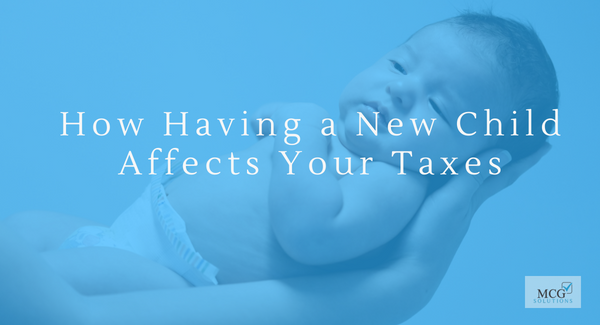If you’ve welcomed a new child to your family this year, you’ll need to consider how it will affect your tax return in the coming year. Here are a few examples of ways your taxes will be affected by your new addition.
Social Security number
You will need a Social Security number for your child to be able to claim him or her on your tax return as a dependent. A failure to report the Social Security number for your dependents could result in $50 fines and prevent you from getting a tax refund until you sort out the paperwork.
Fortunately, getting a Social Security number is easy—you’ll be able to request a card at the hospital at the same time you apply for a birth certificate. It will usually take four to six weeks for that card to be mailed to you after your child’s birth.
Child tax credit
New babies give you a tax credit of up to $1,000. Unlike deductions that reduce the amount of taxable income you have, this tax credit is an actual-dollar reduction of your tax bill. It starts to be phased out at higher income levels, particularly if you have more than $110,000 on a joint tax return or $75,000 on a single or head of household tax return. For some tax payers this credit is refundable, which means if it exceeds your tax liability for the year, the difference will come to you in the form of a refund check.
Withholdings
Having an extra dependent allows you to adjust your withholding from your paycheck. Fill out a new W-4 form and submit it to your employer, and you’ll boost your take-home pay each month as you cut the withholdings from your paycheck slightly.
Child care credits
If you pay for child care that allows you to maintain employment, you are eligible for a tax credit of between $600 and $1050 if you’re paying for care for a single child under the age of 13 or double those amounts if paying for care of multiple children under the age of 13. The size of that credit depends on how much childcare you’re paying for (up to $3,000 for the care of one child and up to $6,000 for the care of multiple) and the income you earn.
Adoption credits
If you adopted a child, there are tax credits to help offset those costs. In 2017, that amount was up to $13,570. If you adopt a child with special needs, you are able to claim the maximum credit amount even if that amount exceeds your actual adoption costs.
These are just a few examples of how welcoming a new child can affect your taxes. For more information, contact us at MCG Solutions!

